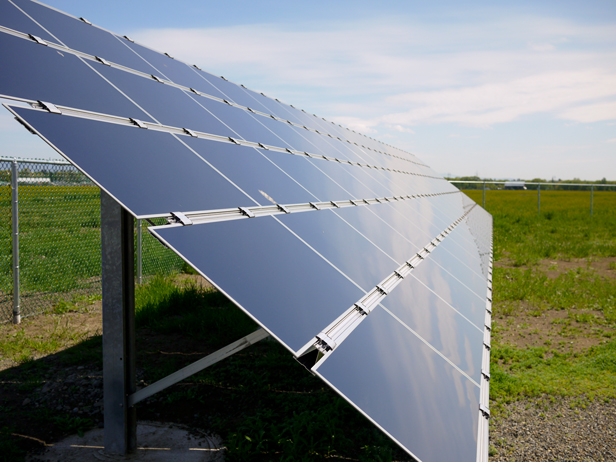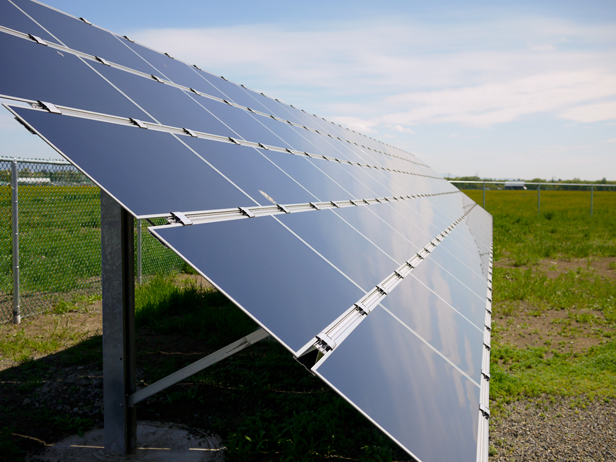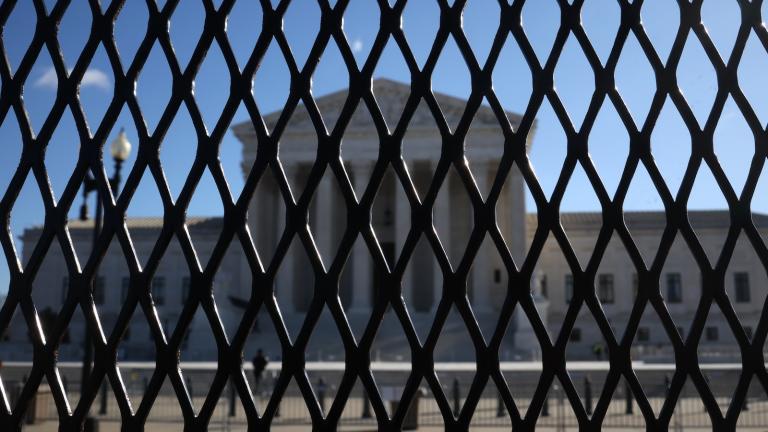 A bipartisan group of think tanks says we should be investing more heavily in clean energy.We all knew cap-and-trade was dead, even before Democratic Senate candidate Joe Manchin (W.Va.) shot it. Now a bipartisan team — imagine that — of think tanks say we should keep it dead and instead spend a lot more money on renewable energy technologies.
A bipartisan group of think tanks says we should be investing more heavily in clean energy.We all knew cap-and-trade was dead, even before Democratic Senate candidate Joe Manchin (W.Va.) shot it. Now a bipartisan team — imagine that — of think tanks say we should keep it dead and instead spend a lot more money on renewable energy technologies.
All we are saying … is give clean a chance: The proposal from the right-leaning American Enterprise Institute and the liberal Brookings Institution and Breakthrough Institute concludes that the only way forward on climate is to go all in on renewable energy. They’re recommending a yearly $25 billion investment in clean technology research by the Energy Department — a position their report presents as middle ground:
The choice is not, as liberals often maintain, between global warming apocalypse or mandating the widespread adoption of today’s solar, wind, and electric car technologies. Nor is the choice, as conservatives have argued, between an economy wrecked by liberal global warming policies or expanding drilling and nuclear power.
The think-tankers also push the idea of a new generation of small nuclear reactors and favor ending federal government subsidies for any forms of energy that don’t improve efficiency. [Politico]
And in other green news:
Is anybody happy?: The deepwater drilling moratorium in the Gulf is over, but no one is doing much celebrating. Green groups see lifting the ban as premature and more a political play to help Gulf-state Democratic candidates before the elections. Here’s a take from Phil Radford, executive director of Greenpeace USA:
This is pure politics of the most cynical kind. It is all about the election season, not safety and environmental concerns. The White House wants us to believe that they have solved all the dangers of offshore drilling and we can return to business as usual. It is a false promise, if not a big lie.
The oil industry and their boosters in Congress, meanwhile, say the end of the moratorium is mainly a symbolic gesture. What matters, they contend, is how long it takes the Interior Department, with its tougher regulations and requirements, to issue new drilling permits. Even Michael Bromwich, head of the Bureau of Ocean Energy Management, isn’t sure about that:
It will clearly not be tomorrow, and it’s not going to be next week. How far in the future it will go … I don’t know. I don’t think anybody knows. My sense is that we will have permits approved before the end of the year, but how much before the end of the year I can’t say and how many permits I can’t say.
[The Hill]
Taking a grandstand: For her part, Sen. Mary Landrieu (D-La.) is basking in the success of her gambit: standing up to the White House in the name of oil jobs. Even though the moratorium’s gone away, she says she still plans to hold up the confirmation of Barack Obama’s nominee for budget director. [The Hill]
Oil’s well that doesn’t end well: The Washington Post offers a long report on the shifting of Barack Obama’s attitude toward offshore drilling and the role it played in his selection of Ken Salazar to run the Interior Department. According to the story by Michael Leahy and Juliet Eilperin, an early favorite for the job, Rep. Raul Grijalva (D-Ariz.), was ruled out because he thought offshore drilling shouldn’t be expanded until the federal government, not the oil industry, was calling the shots. Good call, eh?
Corn-waste fuel: The EPA will approve gasoline blends with 15 percent ethanol for cars made in 2007 and later, a long-awaited decision. [Politico]
In the sick of it: It shouldn’t take a study to tell you that unrelenting heat waves aren’t good for your health, but the Centers for Disease Control wants communities to start thinking about who will be most affected and how they can deal with it. For the first time, the agency is awarding grants to study to how climate change affects public health. [The New York Times]
A not-so-cold war: The melting of the Arctic may be bad for world peace. A NATO commander warns that as the thaw makes more natural resources available, it increases the chances of armed conflict between countries that want them. [The Guardian]
We own the world: China continues its crusade for world domination. Its latest target: oil and gas fields in Texas. [Houston Chronicle]
Now you tell us: A new study by Canadian scientists found that women living in areas with the highest levels of pollution were twice as likely to develop breast cancer. [Treehugger]
Power vacuum: Electric cars will start their comeback tour later this year, but will there really be many places where you can plug in? [NPR]
They be jammin’: What are the 10 cities with the worst commutes caused by suburban sprawl? Here’s an interactive map. It’s not a pretty picture. [GOOD]
Social climber: And the best corporate citizen of the year is Johnson & Johnson. It jumped from fifth to first in the Corporate Social Responsibility Index, followed by the Walt Disney Company, Kraft Foods, Microsoft, PepsiCo, and Apple. [GreenBiz]




